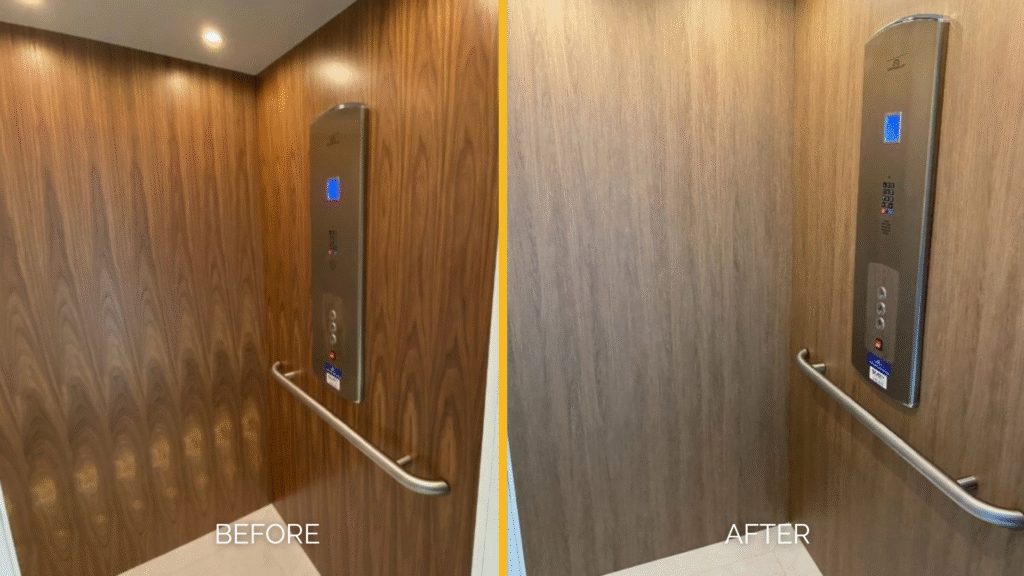Sustainable Elevator Interior Solutions is no longer optional in building design and renovation, it’s a requirement. From hotels to office towers, property managers are under pressure to minimize waste, reduce carbon footprints, and invest in eco-friendly solutions. Elevators, as one of the most frequently used spaces, present a unique opportunity to combine sustainability with design impact.
The Problem with Traditional Renovations
Conventional elevator renovations involve demolition, disposal of old panels, and installation of new materials. This creates unnecessary waste and extends downtime, often leading to significant environmental impact.
Architectural Film as a Sustainable Elevator Interior Solution
Elevator interior refinishing with architectural film avoids demolition by applying durable film directly over existing surfaces. This reduces waste, requires fewer raw materials, and cuts down on energy-intensive manufacturing and transportation processes.
Supporting LEED and Green Building Certifications
Many architectural films meet environmental standards that contribute to LEED credits and sustainability certifications. Using eco-friendly refinishing can strengthen a building’s positioning as a responsible, future-ready property.
Cost and Energy Efficiency
Sustainability doesn’t mean higher costs. In fact, refinishing saves both money and energy. The installation process requires less labor and equipment, while extending the lifespan of existing elevator structures.
Conclusion
Eco-friendly elevator refinishing is a practical way to achieve sustainability goals while enhancing building aesthetics. Property managers who adopt this approach demonstrate environmental responsibility and future-proof their assets.

